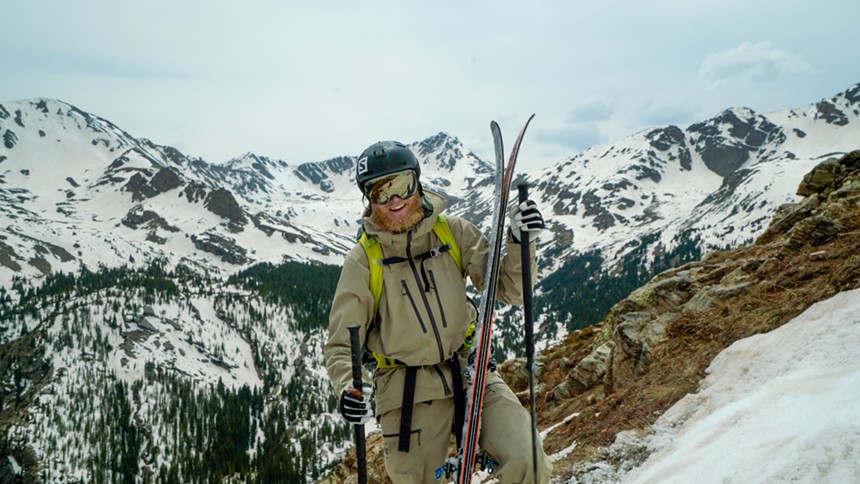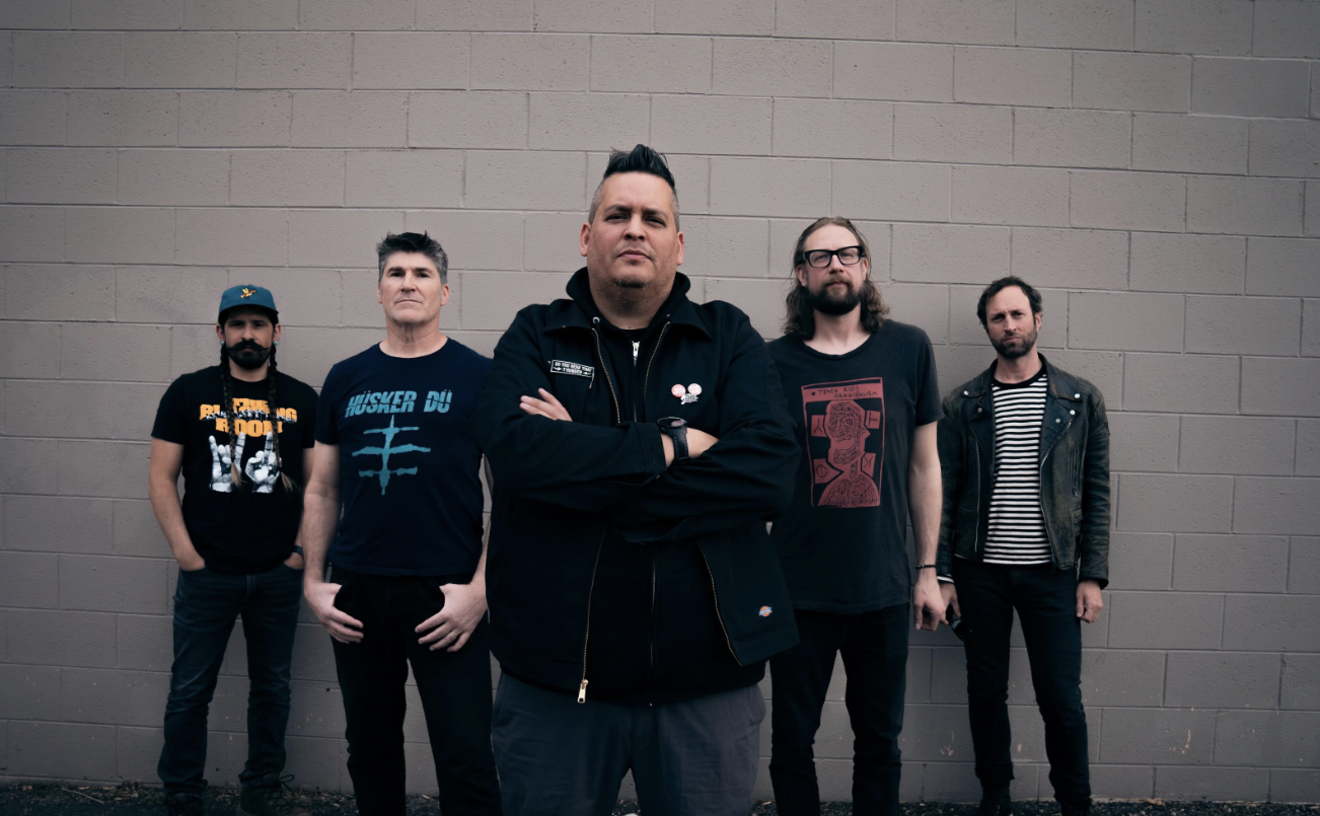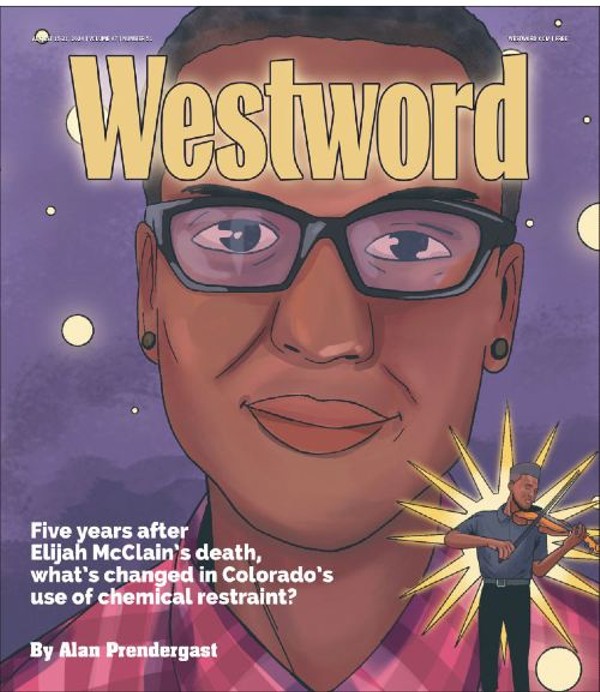But his new self-produced documentary, Feel It All, goes below the surface, conveying an honest portrayal of his struggles with suicidal depression. In the film, Petersen draws parallels between his mental health and his first time running the Leadville Trail 100 ultramarathon, which provided him with a newfound strength and purpose. Feel It All will screen in Denver on August 14.

After he completed the Leadville 100, Petersen skied the peaks surrounding the course — including several fourteeners.
Feel It All
“When I really poured myself into ultrarunning, it started as a form of running away from my suicidal thoughts and the pain that I was experiencing,” he explains. But that escape hatch closed when Petersen experienced a collarbone break a few years later and again went into a downward spiral. It was during this low point that he revealed his long-hidden suicidal thoughts, which began at the age of nine.
In seeking treatment, Petersen was diagnosed with bipolar II disorder, post-concussion syndrome and post-traumatic stress disorder. “I think that explains a lot of the root of my cyclical episodes," he says, "especially my depressive episodes."
But his environment also played a role. “In the outdoor world, especially in the ski world, we have this good-vibes-only culture," Petersen tells us. "We're supposed to be happy and stoked all the time, [but] it doesn't leave space for people to show up as themselves when they are struggling, and it invalidates that human experience."
This sentiment falls in line with the “paradise paradox,” a term coined by journalist Kelley Manley. Petersen paraphrases it to mean “We can live in paradise, but we can also struggle. Both of those things [can] be true at once.”

The film will launch online at 4 a.m. on August 17, the same time that the Leadville Trail 100 Run will kick off.
Feel It All
The suicide rate in Summit County, where Petersen was raised and currently resides, was double the national average in 2018. Pitkin County, which is home to Aspen, was nearly 2.5 times the national rate the following year. San Miguel County, where Telluride is located, had a suicide rate of more than five times the national average in 2021, per data from the CDC and the Colorado Department of Public Health and Environment.
“My story is the story of our community,” says Petersen. He adds that in his past three years of mental health advocacy, thousands of people have affirmed how relatable and prevalent these issues are. “At the least, I want to improve the culture of the outdoor world and mountain towns," he says. "The moonshot for me is to shape the future of the United States and humanity.”
Following a free group run at 6 p.m., Feel It All will be screened at 7:30 p.m. on Wednesday, August 14, at Runners Roost. Petersen will be in attendance and will host another screening in Leadville on Friday, August 16.
The film will launch online at 4 a.m. the following day; at the same time, a shotgun will fire, signaling the start of the Leadville Trail 100 ultramarathon, which Petersen is participating in for the third year in a row.
He no longer runs away from his struggles. Rather, he concludes, “I’ve become more intentional [about] running toward what makes life full. Part of that is feeling the whole spectrum of the human experience — the good and the bad.”
Feel It All screening, 7:30 p.m. Wednesday, August 14, Runners Roost, 1685 South Colorado Boulevard. The event is free.












